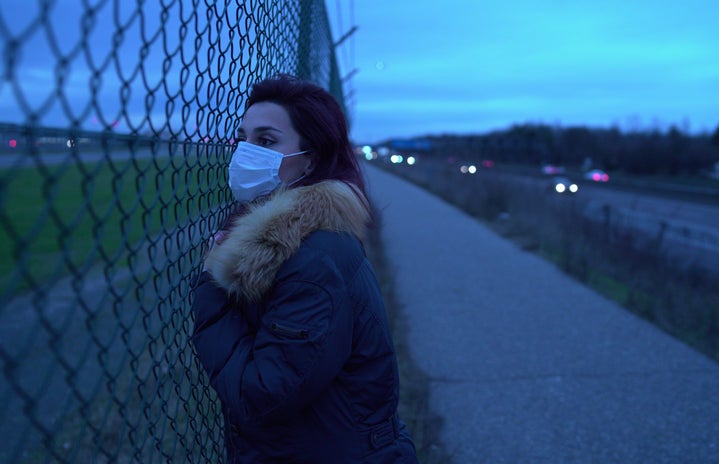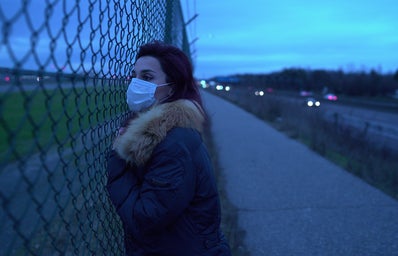There is no doubt that COVID-19 has seeped through every pore of my life. My school, my social life, but most importantly my family. Many people do not understand the repercussions of the virus in the same light that I do. For those who have a family member on the frontline of the battle against COVID-19, you know exactly what I am talking about when I say “repercussions”.
I don’t just see the news or social media posts, I see the real damage that the disease does first hand. The news just doesn’t encapsulate the emotional and mental damage the virus leaves on those working so hard to fight it. My strong willed and passionate sister goes to work every night, advocating for herself, fellow nurses, and patients. Not only does she continuously advocate for her own protection, but she continues to go into work despite the lack of personal protective equipment present in the hospital. She comes home more exhausted than the night before and lives in fear of infecting her loved ones. She knows we love her and that we support her through this tough time, but we are the same people she puts at risk every time she enters the hospital to care for and save your family members. She sits in her bedroom alone, self-isolating, to avoid contaminating the rest of the household. I have sat next to my sister at the dinner table for as long as I can remember, this is the first time that our dinner bond has been broken. She constantly reads medical research and updated reports on ways to combat this virus while you read blog posts from writers who think they know what they are talking about.
Frontline workers are not supported by the general public or the CDC. China, Italy, and other countries established that COVID-19 is an airborne disease well before it showed up in the States. However, the American CDC ruled the disease droplet based and downgraded precaution guidelines to reflect the lack of personal protective equipment in hospitals. If the virus is deemed less “dangerous” then the CDC and hospitals do not have to provide high-grade protective supplies to workers.
While the general public wastes masks and gloves at grocery stores or parks, my sister and her fellow nurses enter a patient’s room in reused masks and gowns for days on end. On not so lucky nights, garbage bags take the place of isolation gowns as a form of protection. Witnessing the waste of valuable medical supplies is a slap in the face to any frontline worker, especially those in direct contact with COVID-19 patients. Next time you think of using a mask to go to the supermarket, remember that my sister or any other nurse could very well be entering a COVID-19 patient’s room at the same time unprotected. While you sit cozy in bed and complain about social distancing, I anxiously wonder if my sister and her fellow staff have the proper equipment for the night. You don’t deserve those masks, gloves, or protective gear, they do. You don’t deserve to waste valuable supplies that protect those on the frontline.
If you want to put an end to this madness, donate any medical supplies that you have to your local hospital. I guarantee that they will graciously accept it. If you want to put an end to this madness, practice real social distancing and do not leave your home. Next time you see a frontline worker, thank them for risking their lives to save yours. Never take for granted that you get to sit in the protection of your home because others do not have the same privilege.



